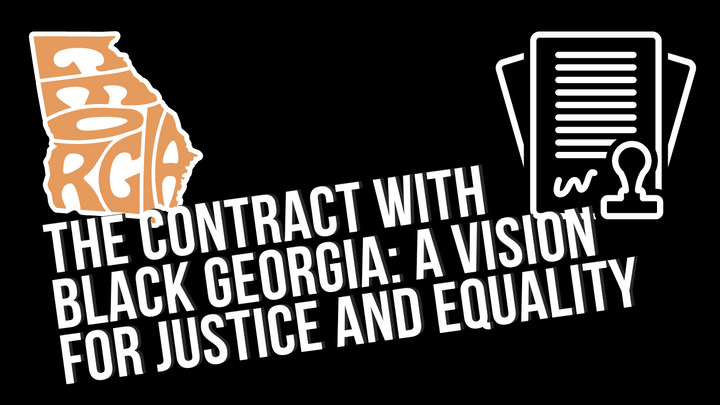A New Dawn: Introducing the Contract with Black Georgia
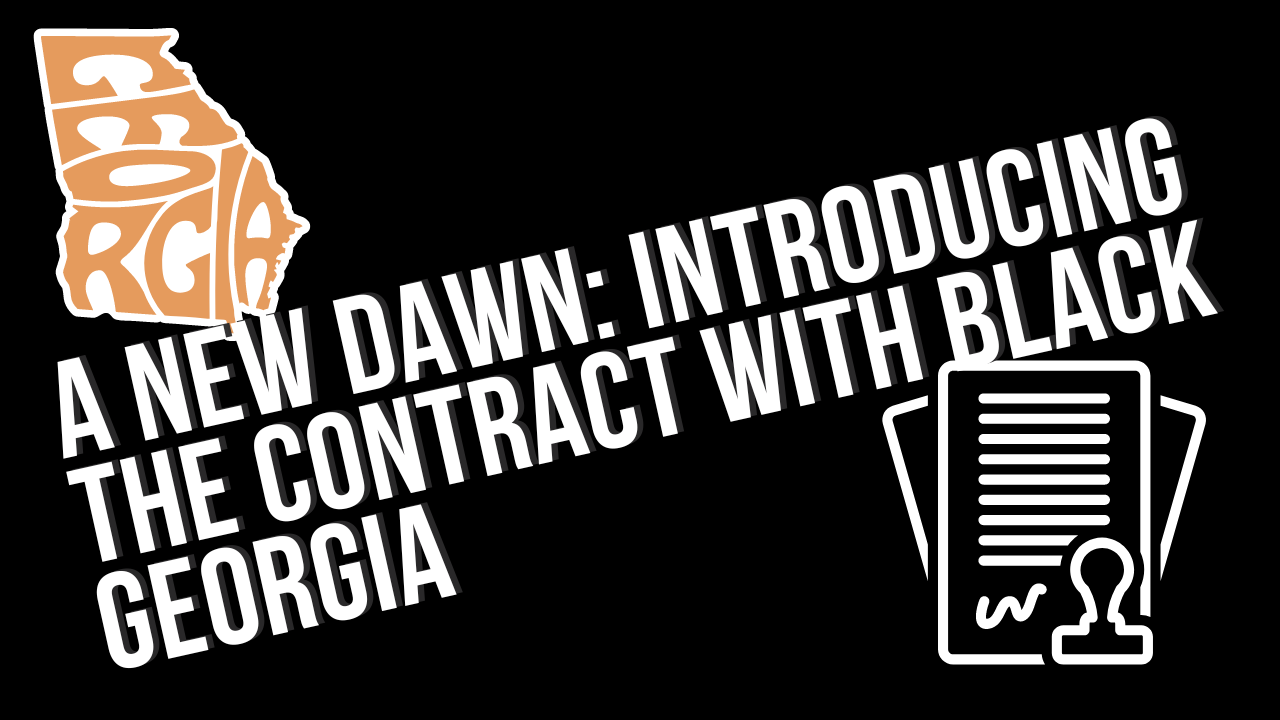
Introduction
Georgia, a state with a rich cultural heritage, is a testament to its people's resilience, creativity, and industriousness, particularly its Black community. From the harmonious strains of soulful melodies to the passionate activism echoing in its streets, the African-American community has tirelessly woven their narratives, hopes, and aspirations into the very fabric of the state. Their contributions have been immense, profound, and transformative, spanning fields like arts, sciences, politics, and more.
Yet, history bears witness to the fact that this community, which has given so much, has been consistently and systematically denied its rightful place in the sun. Economic inequities, social injustices, and political disparities have left deep scars. The structural imbalances, stemming from decades, if not centuries, of prejudice, discrimination, and systemic racism, have thwarted the African-American community's endeavors to achieve the same prosperity, safety, and representation that other communities often take for granted.
This is not merely a relic of a bygone era. Even today, the effects of these disparities are palpable in various sectors – from the corporate boardrooms of Atlanta to the classrooms in Savannah, from the medical clinics in Macon to the farmlands of Athens. Black Georgians face insurmountable obstacles perpetuated by systems never designed with their welfare and progress in mind.
But Georgia is also a state of change, dynamism, and hope. The winds of change are blowing, heralding a new era where the rights of every Georgian, irrespective of race or background, are upheld, cherished, and protected. Against this backdrop, the Contract with Black Georgia comes forth, not just as another piece of legislation or a mere agreement but as a testament to a collective aspiration for a brighter, more equitable future.
The Contract with Black Georgia is not just ink on paper. It is a commitment, a promise, and a rallying cry. It emerges as a clarion call to action, challenging every stakeholder in the state – from policymakers to the common citizen – to introspect, recalibrate, and take tangible steps towards ensuring that the African-American community's contributions are not just acknowledged but that their rights, aspirations, and dreams are also prioritized and realized.
Download the Contract with Black Georgia
The document charts a clear path toward rectifying the deep-rooted disparities. It seeks to address economic challenges, from wealth gaps to credit access; confront social issues like voter suppression and incarceration rates; combat environmental concerns that disproportionately affect Black communities; bridge health and educational inequalities; redress infrastructural disparities; and ensure genuine, equitable representation in governance.
This is a decisive moment in Georgia's history. The Contract serves as a beacon, illuminating the path towards an era where equity is not just a buzzword but a lived reality, and justice is not a distant dream but an everyday experience. It reminds us that while the journey may be challenging, the destination — a Georgia where every individual, regardless of color- can thrive — is well worth the effort.
The Contract with Black Georgia encapsulates a vision for the state where the vibrant tapestry, woven with the threads of every community's contributions, truly shines in all its glory. And for that vision to be realized, it's imperative that every Georgian, hand in hand, strides forward with conviction, courage, and commitment.
Download the Contract with Black Georgia now!
Why the Contract?
Georgia's Black community has historically faced many challenges deeply rooted in systemic barriers and institutional biases. These challenges span multiple domains, including economics and governance. The need for the Contract with Black Georgia arises from recognizing these challenges and their urgency.
Understanding the Challenges
- Economic Hurdles: Economic inequality has been a persistent issue for the Black community in Georgia. Many Black Georgians are disadvantaged due to discrepancies in income, a substantial wealth gap, and limitations in accessing vital resources such as credit. These economic challenges don't just stem from individual circumstances but are a result of years of systemic discrimination and economic policies that did not cater to the unique needs and experiences of the Black community.
- Governance Challenges: On the governance front, the Black community in Georgia has confronted several issues, like voter suppression and gerrymandering. These political tactics are not just challenges on paper but directly impact the community's representation in decision-making bodies and influence policies that affect their daily lives.
Beyond economics and governance, the challenges extend to social issues, health disparities, environmental concerns, educational inequalities, and infrastructural limitations. Each domain brings its own set of unique problems, which require targeted solutions.
Why a Contractual Approach?
A contract, by definition, is a binding agreement between two or more parties. It's a commitment to adhere to specified terms and conditions and holds parties accountable. Applying a contractual approach to addressing the disparities faced by Black Georgians ensures:
- Commitment: A written document, such as this Contract, is a tangible commitment. It is a pledge by all stakeholders to understand, recognize, and act upon the challenges faced by the Black community in Georgia.
- Collaboration: The Contract is not an isolated initiative by a single organization or group. It invites collaboration. It calls stakeholders across sectors – governmental bodies, private entities, or community organizations – to come together and work towards common goals.
- Accountability: With a contract in place, there's a framework for accountability. Stakeholders can be held responsible for their roles, actions, and promises. This accountability ensures that the challenges identified are not just recognized but actively addressed.
- Sustainability: Short-term solutions can provide immediate relief, but sustainable solutions are essential for longstanding change. The Contract emphasizes robust and long-lasting solutions, ensuring that the measures taken are not just temporary fixes but sustainable strategies that will benefit the Black community in the long run.
In essence, the Contract with Black Georgia is a significant step toward acknowledging the historical and ongoing challenges faced by the Black community in the state. It's a testament to the collective will to rectify these challenges. The Contract provides a structured, collaborative, and accountable framework to ensure that the multifaceted issues faced by Black Georgians are addressed holistically.
Understanding the Key Challenges to be Addressed
For years, the Black community in Georgia has navigated a labyrinth of systemic challenges that have curtailed their socio-economic progression. It's paramount to comprehend these disparities to initiate effective remediation. This section elucidates the primary issues that the Contract with Black Georgia aims to address.
1. Economic Disparities:
At the heart of economic challenges faced by Black Georgians is the matter of income inequality. The disparity in earnings between Black and non-Black communities has remained notably wide for decades. This wage gap is a symptom of larger systemic issues manifesting in other economic challenges.
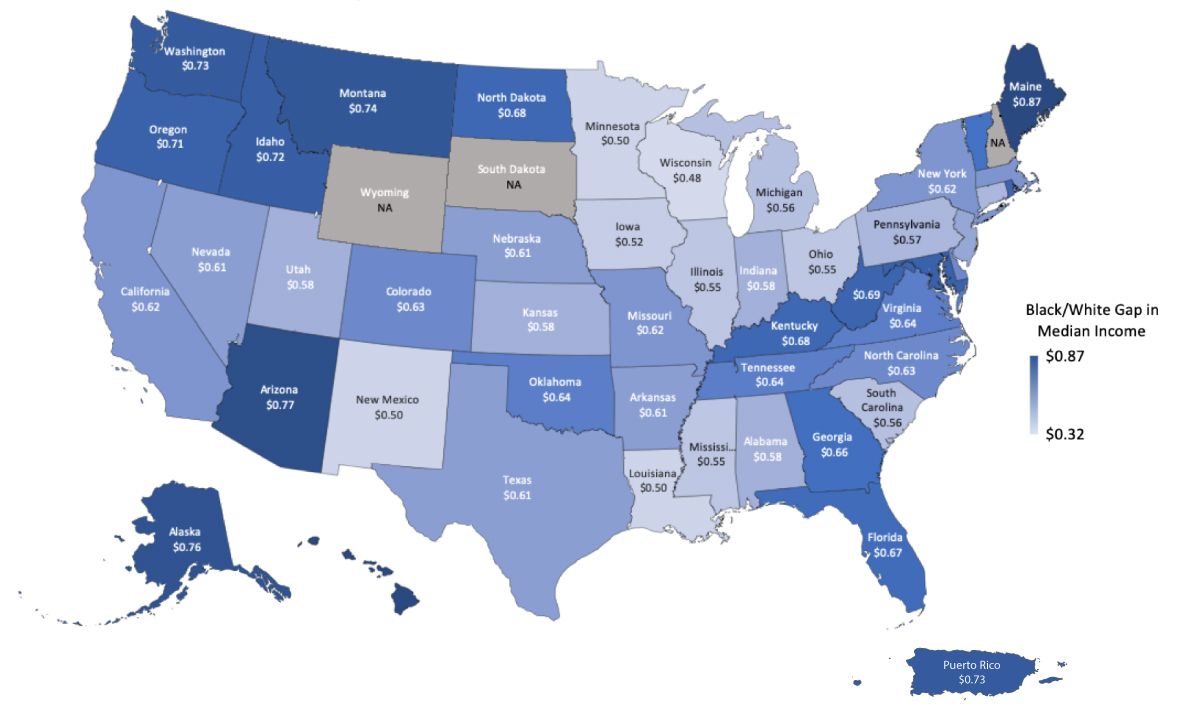
Comparing Historic Poverty Rates & Ratios by Area: 2000 to 2021 (Source: US Census and ACS 1-Year; ARC RAD)
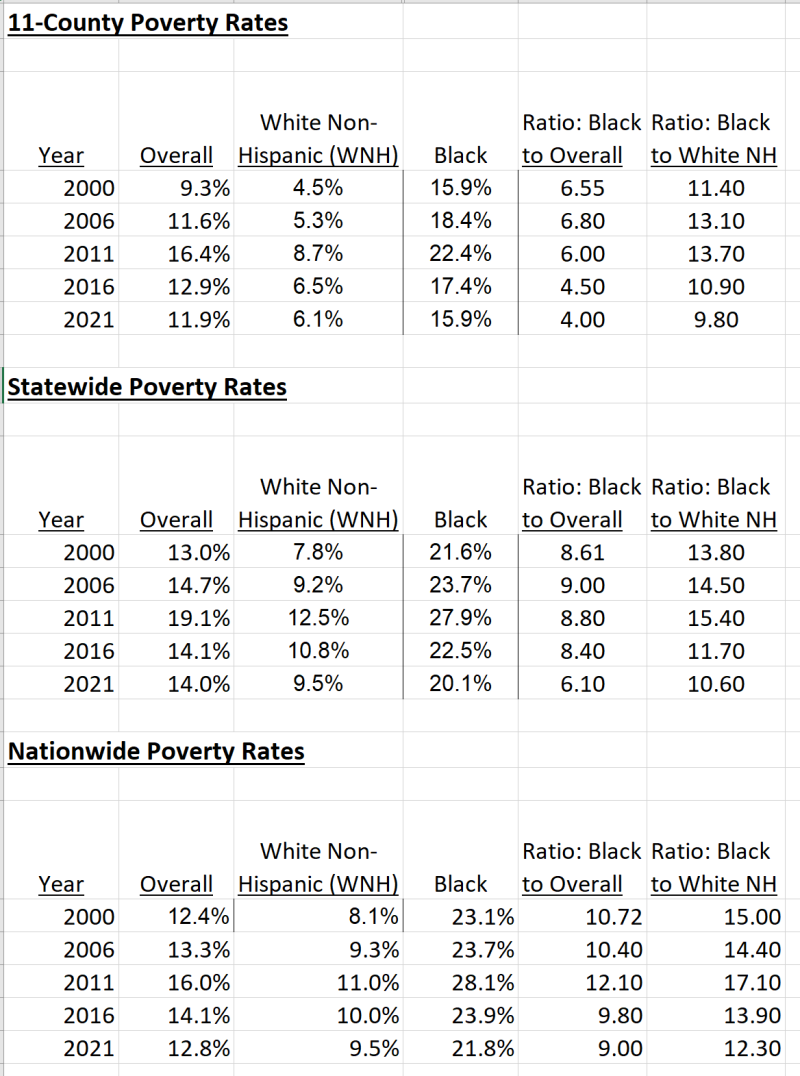
The wealth gap extends beyond mere monthly earnings. Many Black families find it difficult to accrue generational wealth, a vital social mobility and security instrument. This means fewer assets and savings and more vulnerability during economic downturns.
Additionally, Black Georgians often find themselves at a disadvantage when accessing credit. With limited access to financial resources, starting a business, purchasing a home, or even advancing one's education can become arduous tasks, further perpetuating economic disparity.
2. Social Issues:
Social challenges encompass a wide array of impediments. Foremost among these is institutionalized racism, which is not just a relic of the past but an ongoing issue affecting many Black Georgians today. It can appear in various forms, from hiring biases to differential treatment in everyday situations.
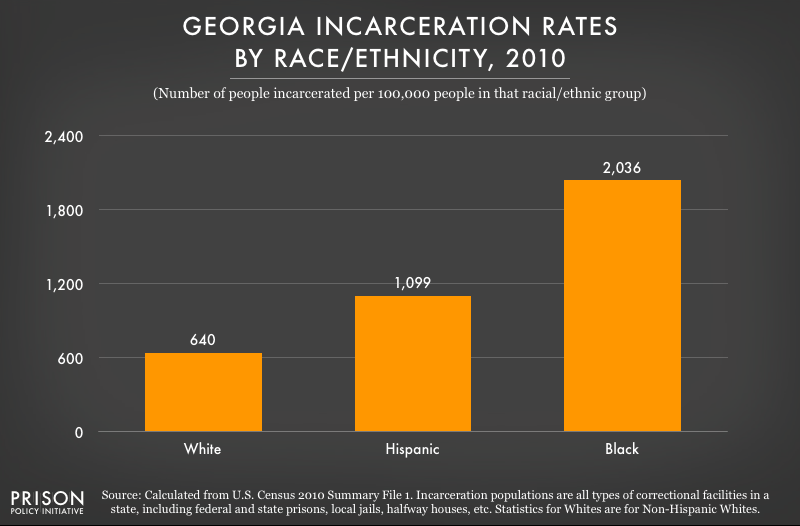
Coupled with this is the dark shadow of voter suppression. The right to vote is a cornerstone of democracy, yet systemic hurdles are placed that disproportionately affect Black voters. This disenfranchisement compromises the very foundation of democratic representation.
Further exacerbating the social divide is the high incarceration rate of Black individuals. This isn't just a reflection of criminal justice bias but also indicates broader socio-economic challenges, including lack of opportunity and systemic discrimination.
3. Environmental Concerns:
Environmental racism is a pressing issue beyond just the Black community in Georgia but is felt acutely here. Historically, Black communities have been located near hazardous waste sites, landfills, and other environmentally harmful installations, commonly known as brownfields. This has a direct effect on the health and well-being of residents.

Moreover, the ramifications of climate change seem to strike Black communities more intensely. This could be attributed to residing in areas more susceptible to flooding, heat waves or lacking the resources for mitigation.
4. Health Disparities:
Health is a universal right, but for many Black Georgians, adequate healthcare remains elusive. Access to quality healthcare services is unevenly distributed, often based on income, resulting in Black communities facing more challenges in accessing care.

Beyond general healthcare, Black men and women in Georgia have unique health challenges. This includes higher rates of chronic diseases and conditions the existing healthcare infrastructure doesn't address adequately.
5. Educational Inequalities:
Education is often seen as the great equalizer, but for Black communities in Georgia, the playing field isn't level. Schools in predominantly Black areas grapple with underfunding, affecting the quality of education students receive. This has long-term impacts, influencing job opportunities and life trajectories.
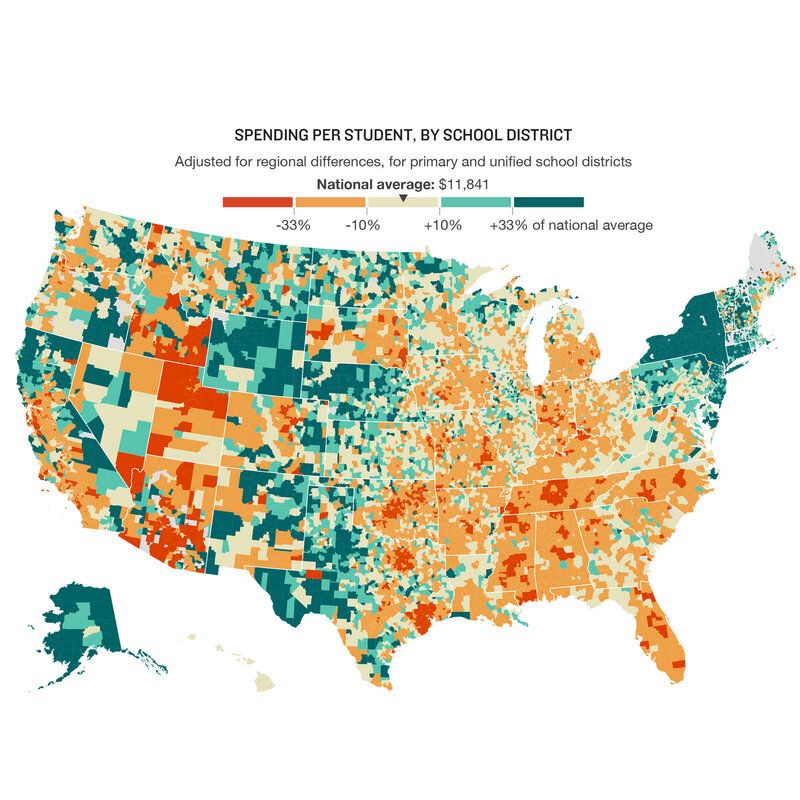
Moreover, Historically Black Colleges and Universities (HBCUs) in Georgia, which have been pivotal in educating and empowering Black students, face their challenges. From funding disparities to infrastructural issues, these vital institutions must bolster support to continue their essential role.
6. Infrastructure:
The term 'service deserts' refers to areas where essential services, be it healthcare, fresh food, banking, or even broadband, are scarce or absent. Black communities in Georgia disproportionately find themselves in these deserts, further deepening the divide. Progress and development become stifling tasks without access to these basic amenities.
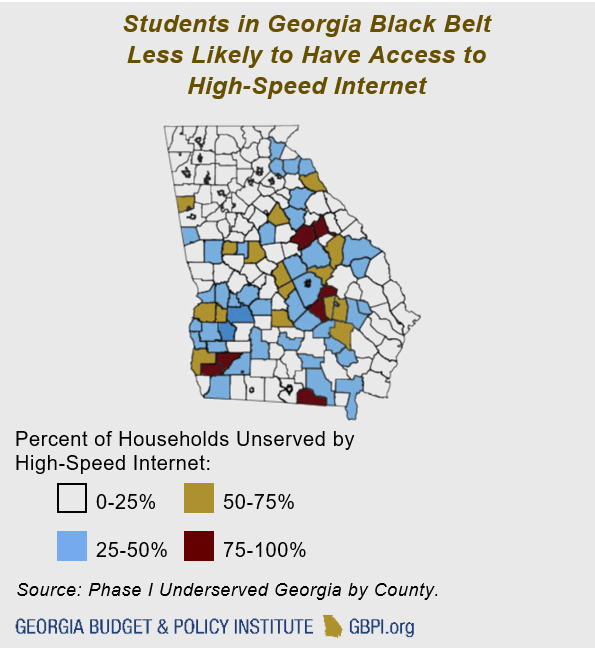
7. Governance and Politics:
Democracy promises representation, but the systemic practices of voter suppression and gerrymandering challenge this promise. Measures, often veiled under the guise of 'voter integrity,' have been introduced that disproportionately make it harder for Black Georgians to vote. Furthermore, gerrymandering alters electoral boundaries, often diluting the Black vote. These practices don't just challenge democracy but threaten the very essence of representation.
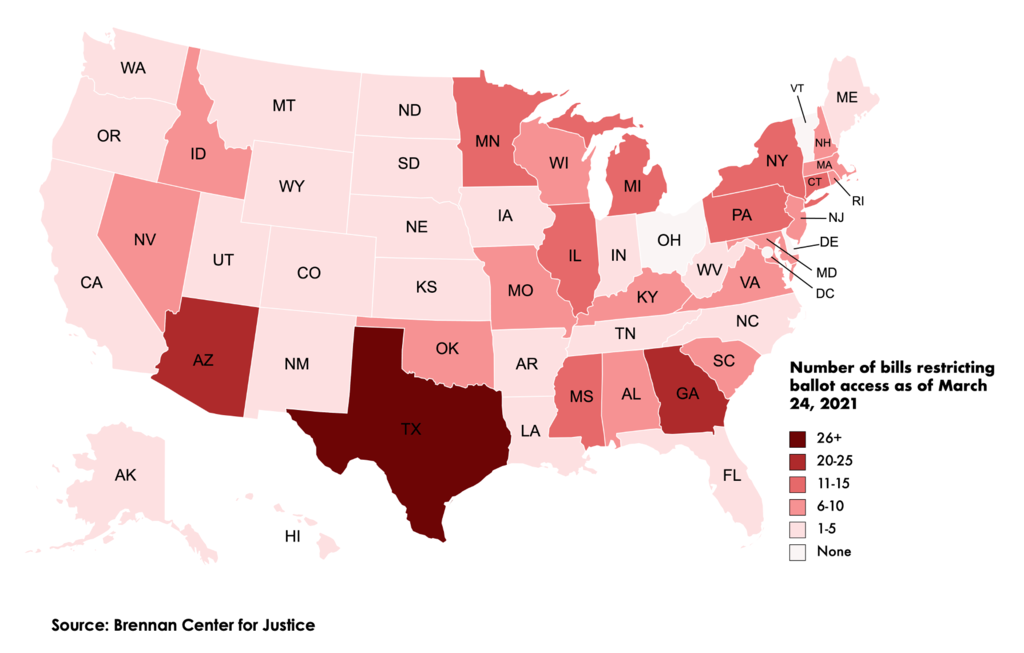
In sum, these challenges, though varied, collectively inhibit the progress of Black Georgians. Recognizing them is the first step, and the Contract with Black Georgia is a concerted effort to address and rectify these deeply rooted issues.
The Path Forward in Black Georgia's Journey Towards Equity
Addressing the challenges faced by Black Georgians requires a structured approach rooted in actionable measures. The Contract with Black Georgia presents a clear roadmap through legislative acts, resolutions, and understandings. Each of these is formulated to target specific areas of disparity and is crafted to bring about meaningful change.
Economic Index: Georgia Wealth Gap Rectification Act of 2024
Economic disparities have long been an area of concern for Black Georgians. Central to this issue is housing discrimination, where Black residents often find fewer opportunities due to systemic prejudices. Coupled with this is the restricted access to credit, putting many essential services and opportunities out of reach. The Georgia Wealth Gap Rectification Act of 2024 specifically addresses these concerns, aiming to level the economic playing field for Black residents.
Download the Georgia Wealth Gap Rectification Act of 2024.
Social Index: Breaking Georgia's Cycle of Incarceration Act of 2024
The social fabric of Black Georgia is strained by disproportionate incarceration rates. This often results from inadequacies in the system, such as a lack of mental health services for inmates. Comprehensive reentry programs are vital to ensure that individuals can reintegrate into society successfully. The Breaking Georgia's Cycle of Incarceration Act emphasizes enhanced mental health support and reentry measures to address these challenges.
Download the Breaking Georgia's Cycle of Incarceration Act of 2024.
Environmental Index: Georgia Environmental Health Equity Act of 2024
Environmental concerns for Black Georgians often revolve around Brownfields—previously used land that may have hazardous substances, pollutants, or contaminants. These sites can lead to health issues for the communities residing around them. The Georgia Environmental Health Equity Act takes a direct approach to address the impact of these Brownfields, particularly on Black and Brown communities.
Download the Georgia Environmental Health Equity Act of 2024
Health Index: Georgia Mental Health Access and Social Advancement Act of 2024
Healthcare access remains a pressing concern. Especially regarding mental health, Black Georgians find fewer resources available to them. This lack of access has broader societal implications, contributing to challenges like recidivism, homelessness, and domestic violence. The Georgia Mental Health Access and Social Advancement Act focuses on improving this access, ensuring that Black Georgians have the support they need for mental well-being.
Download the Georgia Mental Health Access and Social Advancement Act of 2024
Education Index: Equity in Funding for Georgia's HBCUs Act of 2024
Historically Black Colleges and Universities (HBCUs) are central to the educational aspirations of many Black Georgians. However, there's a stark disparity in funding between HBCUs and Predominantly White Institutions (PWIs). The Equity in Funding for Georgia's HBCUs Act aims to rectify this imbalance, ensuring that HBCUs receive the financial support necessary to thrive.
Download the Equity in Funding for Georgia's HBCUs Act of 2024
Infrastructure Index: Georgia Desert Mapping and Intervention Act of 2024
Several regions in Georgia lack essential services, ranging from healthcare to transportation—often called 'deserts' in policy language. The Georgia Desert Mapping and Intervention Act identifies these regions and ensures that residents have equal access to vital services regardless of their background.
Download the Georgia Desert Mapping and Intervention Act of 2024
Governance Index: Voter Integrity and Transparency Act of 2024
A robust democratic process is the backbone of any free society. However, measures like SB 202 have raised concerns about the transparency and fairness of the voting process in Georgia. The Voter Integrity and Transparency Act aims to reinforce the democratic process, ensuring all voters have a fair chance to make their voices heard.
Download the Voter Integrity and Transparency Act of 2024
The Contract with Black Georgia is not just a document—it's an actionable plan to build a brighter, more equitable future for all Georgians.
Get Involved
The success of the Contract with Black Georgia hinges on the active participation of individuals and organizations alike. Direct involvement is crucial in driving change and achieving the goals set out in the Contract.
To make these resolutions actionable, we need your help. Here's how you can contribute:
- Volunteering: Support grassroots initiatives directly.
- Donations: Fund vital projects to ensure their success.
- Advocacy: Speak up and participate in important discussions about these challenges.
- Community Engagement: Join us in forums, town halls, and workshops to stay informed and contribute to the conversation.
Understanding and Download the Contract with Black Georgia
The Contract with Black Georgia is a pivotal document designed to address and remedy the longstanding disparities Black Georgians face in various sectors. To fully grasp the depth and breadth of this initiative, it's essential to delve into its specifics.
We encourage you to access the full document to gain a detailed insight into the challenges and the proposed solutions. By doing so, you can be part of informed discussions and advocacy efforts geared toward implementing the outlined actions. Download the Full Contract with Black Georgia here. Sharing this initiative with peers and stakeholders can amplify its impact, fostering a collective push for equity and justice in Georgia.
In Conclusion
Georgia's Black community, rich in history and contributions, has faced longstanding systemic disparities. The Contract with Black Georgia has been formulated to address and rectify these challenges directly. It is more than just words on paper. It is an actionable promise for a future where these disparities no longer exist.
The Contract with Black Georgia signifies a solid pledge to ensure an equitable future for Black Georgians. This document isn't just about recognizing the multifaceted challenges; it's about taking decisive actions to mitigate them. Focusing on key areas like economic disparities, social issues, environmental concerns, health disparities, educational inequalities, infrastructure, and governance, this initiative aims for a Georgia where every Black citizen can experience justice, equity, and prosperity.
This isn't a solitary endeavor. Success hinges on collective effort. From individuals to organizations, everyone has a role to play. We urge everyone to actively engage with the Contract, offer feedback, and participate in its implementation. We can embark on a transformative journey toward a fairer Georgia by uniting under this initiative.
